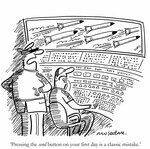

The “No First Use” nuclear doctrine—in which a country pledges not to use nuclear weapons or any other weapons of mass destruction first— has taken center stage in world politics recently. The Manchester Essex Regional High School Debate Team has taken up this question, arguing both sides. The power of high school debate as a program is it forces all participants to defend every side of a debate effectively, regardless of whether they are in personal agreement with the position. Debate builds skills that are powerful in considering other opinions and engaging important current events like this one about the ethics of weapons of mass destruction during times of war.
This week, Finn O’Hara defends the “Yes” position and Charlie Lations defends the “No” position. Here they are:
By Finn O’Hara
The affirmative side of this argument will focus on the decreased probability of nuclear war with the No First Use policy and all of the negative impacts that are consequently avoided.
According to Mario Catalan of the International Monetary Fund blog, “Russia’s invasion of Ukraine, rising geopolitical tensions, and strained ties between the United States and China,” in recent years have raised foreign tensions along with the probability of nuclear warfare.
Adopting a declaratory nuclear policy of no first use, however, can decrease the chance of a nuclear war.
Most directly, a declaratory no first use policy would take away the possibility of the United States acting as the catalyst of a nuclear war.
As a result, nations with smaller nuclear arsenals would also be less likely to be aggressive. In the status quo, these less powerful countries fear that they would be wiped out if they allow the United States to strike first, but the “use it or lose it” mentality would not be necessary without the threat of the United States striking first.
Furthermore, because the No First Use policy, “makes it clear that deterrence not attack is the sole purpose of [the nuclear] arsenal, this bill would reduce the chances of a country acting upon a nuclear miscalculation,” according to Joe Gould. Since 1945, countries have almost acted on miscalculations on 13 separate occasions. A declaratory no first use policy could have prevented each miscalculation.
In a pro world, by avoiding nuclear war, “30% of the total population of the top 145 biggest cities in the United States — 21 million Americans — would die in a Russian nuclear counterattack,” according to a study by global zero.
Nuclear war would also entail terrible environmental effects resulting from the emission of millions of tons of smoke.
Additionally, in the event of the United States initiating nuclear war, they would be, “threaten[ing] the security of U.S. allies,” according to the Center for Arms Control and Non-Proliferation (4). As a result, those nations alienated by the U.S. could abandon them, leaving them politically isolated in a time of war.
Without any foreign aid, the consequences of nuclear war would expand exponentially. Furthermore, alliances that maintain global security would be weakened, and the nuclear war itself would become even more detrimental to the world.
Thus, we affirm; The United States should adopt a declaratory policy of no first use.
By Charlie Lations
The negative of this argument centers on the increased risk of nuclear war as a result of a No First Use policy being enacted.
The United States’ alliances would be severely hurt by an NFU policy. Many allied nations are not in favor of the adoption of such a policy, particularly Southeast Asian nations in close proximity to nuclear countries such as China and North Korea.
These concerns continue even beyond Asia and to major European powers – including countries that are themselves in the nuclear club.
According to the Washington Post, “the governments of Japan, South Korea, France and Britain have all privately communicated their concerns about … a ‘no first use’ nuclear-weapons policy for the United States.”
These nations are all major allies of the United States, and losing their confidence and support would be catastrophic in terms of maintaining global stability.
Another key problem created by the enactment of an NFU policy would be a broad emboldening of United States adversaries.
Essentially, without the threat of nuclear weapons to keep them in check, hostile nations would see less reason to hold back from using military force since the potential consequences are lower.
According to an article from The Bulletin of The Atomic Scientists, “a no-first-use policy would degrade the prospective credibility of the US nuclear deterrent – a particularly imprudent step at a time when Russia and China are rapidly expanding their military capabilities, pursuing aggressive policies in Europe and Asia respectively, issuing explicit threats to US allies in the process.”
These issues are not merely theoretical; “North Korea … repeatedly issues extreme threats against [the United States] and [its] Asian allies while maintaining the world’s fourth largest army and reportedly advanced chemical and biological capabilities,” the Bulletin said.
Another side effect of an NFU policy’s adoption would be an increase in nuclear proliferation.
The number of nuclear weapons in the world has been on a steady decline since the 1980s, as “from a high of 70,300 active weapons in 1986, as of 2019 there are approximately 3,750 active nuclear warheads and 13,890 total nuclear warheads in the world,” according to the SIPRI yearbook.
This trend would reverse if a no-first-use policy was adopted, as many allied nations would feel less protected and thus want to increase the size of their own nuclear arsenals, leading to more proliferation and a broadly more dangerous world.
Thus, we negate; the United States should adopt a declaratory nuclear policy of no first use.